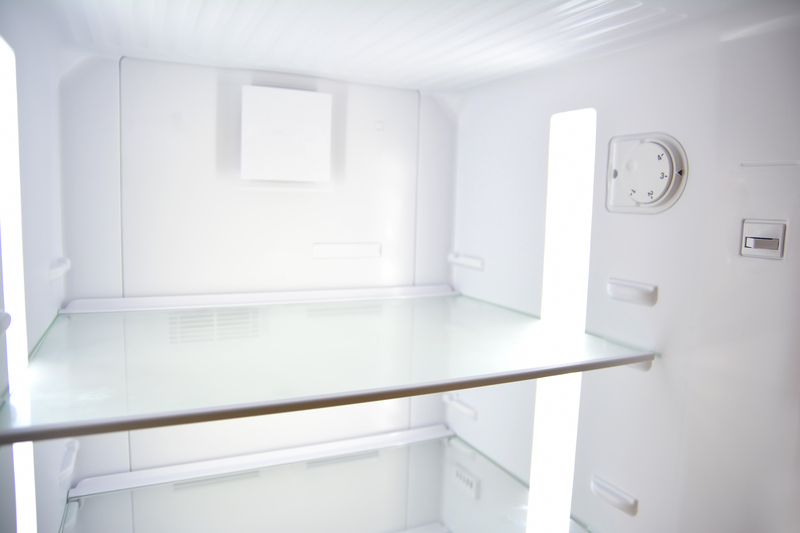How to Carefully Store a Freezer for the Long Term: The Ultimate Guide
In today's fast-paced world, households and businesses rely heavily on freezers for long-term food storage. But what if you need to store your freezer itself for an extended period? Whether you're moving, renovating, or simply freeing up space, understanding how to carefully store a freezer for the long term is essential to keep both your appliance and your food in top condition. In this comprehensive guide, we'll cover every aspect of long-term freezer storage, including step-by-step preparation, cleaning, best practices, and clever tips to preserve your freezer's lifespan.
Why Proper Freezer Storage Matters
A freezer is a significant investment and plays a crucial role in maintaining your food's freshness. When not in use, improper storage can lead to mold buildup, rust, mechanical failure, and even foul odors that are tough to remove. By following the right steps, you ensure that your freezer remains in perfect working order for years to come.
- Maintains appliance efficiency
- Prevents unwanted odors and bacteria
- Protects mechanical and electrical components
- Increases resale or reuse value

How to Prepare a Freezer for Long-Term Storage
1. Remove All Contents From the Freezer
Before anything else, empty the freezer completely. Don't leave anything inside - even items you intend to use soon. Any food left behind can rot, leak, or attract pests, resulting in difficult-to-clean odors and stains.
- Unplug the freezer first to avoid electric shock
- Sort frozen foods: use, donate, or dispose of them
- Wipe down any removable baskets and drawers
2. Defrost Thoroughly
It's critical to thaw solidified ice buildup. Freezer ice melts! If left unattended during storage, melted water leaks can damage the appliance and nearby property. Here's how to carefully defrost your freezer for safe, long-term storage:
- Unplug the freezer and leave the door open
- Place towels or shallow trays underneath to collect water
- Wait for all ice to melt (this can take several hours)
- For stubborn ice, use a wooden or plastic spatula (never metal!)
- Wipe the interior dry with a soft cloth
3. Clean The Interior and Exterior
Your next step is deep cleaning both the inside and outside of your freezer. Lingering residues can decompose and cause harm during storage. For maximum cleanliness and to avoid foul odor, follow these tips:
- Create a solution of mild dish soap and warm water
- Wipe all shelves, racks, and gaskets
- Use a paste of baking soda and water to banish odors and stains
- Rinse all surfaces with plain water
- Dry thoroughly with lint-free towels - moisture is your enemy in storage!
4. Clean the Freezer Coils
Many people overlook freezer coils and condenser fans. Dust accumulation here can cause overheating when you use the appliance again. To maximize your freezer's lifespan:
- Locate coils (usually behind/under the unit)
- Carefully vacuum or brush off dust and debris
- Never use water on electric components!
5. Leave the Doors Open
One of the main causes of mold, mildew, and odor in stored freezers is trapped moisture. The solution: propping the door open with a towel, cardboard, or plastic wedge. This allows for continuous airflow and prevents musty smells.
Safe Handling and Transporting Your Freezer
1. Secure All Moving Parts
To prevent internal rattling and potential damage during the move:
- Remove all shelves, baskets, and trays
- Seal them in labeled bags/boxes, transport separately
2. Protect the Freezer with Padding
Scratches and dents can reduce your freezer's resale value and expose parts to the elements. To avoid this:
- Wrap the unit in thick moving blankets
- Secure with straps or strong tape (avoid taping directly to surfaces)
- Use corner guards for added protection
3. Always Keep Upright
Transporting and storing freezers on their side is a common pitfall. This is a mistake because the compressor oil can flow into unintended areas, causing later failure. Always ensure your freezer stays upright--use a dolly or cart if needed.
Optimal Locations for Long-Term Freezer Storage
1. Store Indoors When Possible
If you have the option, keep the freezer indoors in a climate-controlled environment. Basements, secured garages, or spare rooms are best. Outdoor sheds or storage units should only be used when absolutely necessary, as extreme temperatures can damage components.
2. Avoid Damp and Sunlit Areas
Humidity and direct sunlight are enemies of stored appliances. Excess moisture promotes rust and mold, while heat shortens the lifespan of electrical circuits and plastic seals.
- Place your freezer on a wood pallet or plastic riser to prevent ground moisture from seeping in
- Keep away from windows, vents, and leaking pipes
3. Cover for Dust and Debris, Not for Trapping Moisture
It's smart to shield your long-term stored freezer from dust and pests, but avoid using plastic wrap or airtight materials. Instead, use a breathable cloth tarp or specially designed appliance cover.
Protecting Your Freezer's Electrical System during Storage
Unplug the freezer during storage to prevent energy drain and electrical hazards. Secure and tape down the power cord to the back, preventing tripping and pinching.
- Never plug in the freezer at the storage site if you're not using it
- Check for cord or plug damage before reusing the appliance
Long-Term Maintenance Tips During Storage
Even when stored, your freezer can benefit from periodic attention:
- Every 3-6 months, inspect for dust, pests, or signs of dampness
- Check door seals and gaskets for flexibility (preserve with a light coating of petroleum jelly if desired)
- Repeat cleaning and air out if musty odors develop
Preparing Your Freezer for Use After Storage
When the time comes to bring your stored freezer back to life, take these steps for safety and efficiency:
- Inspect carefully for signs of rust, pests, or mold
- Clean interior and exterior again
- Ensure all components are dry and damage-free
- Let freezer stand upright for at least 24 hours before plugging in (especially if it was tilted at any point during move)
- Check that it runs quietly and cold before loading with food
Common Mistakes to Avoid When Storing a Freezer for the Long Term
Don't fall into these traps!- Failing to defrost and dry thoroughly - leading to water damage and ice blockages
- Leaving the freezer door sealed shut - risking severe fungus or odors
- Storing in humid, sun-exposed, or unlevel locations
- Forgetting to secure power cords or internal parts
- Using airtight wrap instead of breathable covers

Frequently Asked Questions About Long-Term Freezer Storage
Can you store a freezer in an unheated garage?
It's possible, but not ideal. Extreme cold can harden seals and oil, and excessive heat degrades electronics. If the garage environment fluctuates excessively, consider alternative indoor storage.
How long can a freezer stay unused?
If prepped correctly, a freezer can be left unplugged for several years without harm, as long as it's dry, protected from rodents and insects, and checked periodically.
Is it safe to store a freezer on its side?
Never store or move a freezer on its side or back. Oil can escape the compressor and cause damage. Always keep upright.
What to do if my stored freezer smells bad?
Clean thoroughly with baking soda and water, air out for 48 hours, and use odor absorber packs such as activated charcoal or open boxes of baking soda inside.
Final Tips for Storing Your Freezer Safely and Effectively
- Label the freezer as "clean & empty" to avoid confusion
- Leave a slip of baking soda inside to absorb lingering odors
- Keep little wedges or towels in the door to maintain airflow
- Document the appliance's model, condition, and storage location for quick access
Storing a freezer for the long term isn't difficult, but it does require planning and attention to detail. Proper preparation, maintenance, and storage conditions are key to ensuring your appliance is ready to serve you again in the future. By following this complete guide to careful long-term freezer storage, you elongate the life of your freezer and avoid costly repairs or replacements.
Remember: Treat your freezer well in storage, and it will return the favor when you're ready to use it again!



